My wife is recovering from a nasty eye infection, one where I’ve lost count of the visits we’ve made to the doctor and the pharmacy. She’s taking prescription eye drops and a strong antibiotic, and covers her eyes with hot compresses instead of her usual contact lenses. We’re hoping today’s appointment is the end of this ordeal. Odds are however, all of our scurrying around won’t be necessary in a year or two. Instead, my wife will simply seek relief from a digital prescription.
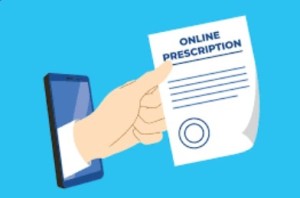 You knew it was coming. The FDA approved the first smartphone app designed to address a diagnosed medical condition, and it’ll be ready for download in just a few months. Rejoyn (don’t ask me where they come up with these names) is a digital prescription designed to combat depression. The patient’s six weeks of self-administered tapping and typing trains their brain back to a healthier state. Or at least, that’s what’s supposed to happen.
You knew it was coming. The FDA approved the first smartphone app designed to address a diagnosed medical condition, and it’ll be ready for download in just a few months. Rejoyn (don’t ask me where they come up with these names) is a digital prescription designed to combat depression. The patient’s six weeks of self-administered tapping and typing trains their brain back to a healthier state. Or at least, that’s what’s supposed to happen.
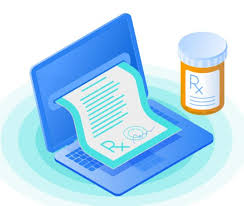 My first thought here was, an app used to address a diagnosed medical condition sounds kind of silly, like playing Tetris or something. But then I realized a prescription of Rejoyn would be one less dose of drugs. Pills removed from the equation is a good thing. But then I read how the results of a Rejoyn beta group were no more successful than those of a group prescribed a sham app. Finally, Rejoyn only works in conjunction with a regimen of traditional medication.
My first thought here was, an app used to address a diagnosed medical condition sounds kind of silly, like playing Tetris or something. But then I realized a prescription of Rejoyn would be one less dose of drugs. Pills removed from the equation is a good thing. But then I read how the results of a Rejoyn beta group were no more successful than those of a group prescribed a sham app. Finally, Rejoyn only works in conjunction with a regimen of traditional medication.
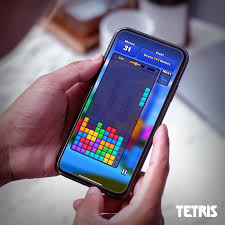 You can see why I’m struggling with the concept. I mean, you still have to take the meds you were already taking and there’s no guarantee the app will improve your condition. So why invest the time and money in your phone? According to an authority from the Division of Digital Psychiatry (which couldn’t have existed even ten years ago), “If the benefits are minimal but the risks are [also] minimal, perhaps there’s no harm in trying it.” Does that strike you as a glowing endorsement of the technology?
You can see why I’m struggling with the concept. I mean, you still have to take the meds you were already taking and there’s no guarantee the app will improve your condition. So why invest the time and money in your phone? According to an authority from the Division of Digital Psychiatry (which couldn’t have existed even ten years ago), “If the benefits are minimal but the risks are [also] minimal, perhaps there’s no harm in trying it.” Does that strike you as a glowing endorsement of the technology?
Rejoyn is the beginning of a wholly different approach to healing. One of these days you’ll find yourself at the pharmacy looking to fill a prescription, and instead of a receiving a bottle of pills you’ll hand over your phone for a download. Then you’ll go home to your couch and – doctor’s orders – spend more time on your phone than you already were. Oh, the irony. Experts say spending too much time on your phone causes depression. Now, the cure for that depression will be to spend more time on your phone.
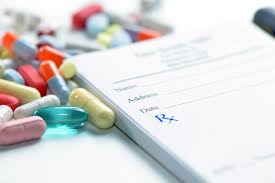 A digital prescription gives a whole new meaning to “overdose”. What happens if you indulge in twelve weeks of screen time instead of six? What if you get so addicted to your electronic cure you can’t pull your eyes and fingers away from the screen? Will the app timeout after so many uses, forcing you to plead with the pharmacy to “renew your subscription”?
A digital prescription gives a whole new meaning to “overdose”. What happens if you indulge in twelve weeks of screen time instead of six? What if you get so addicted to your electronic cure you can’t pull your eyes and fingers away from the screen? Will the app timeout after so many uses, forcing you to plead with the pharmacy to “renew your subscription”?
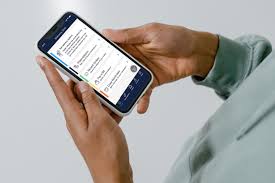
Then there are the side effects. Headaches, loss of sleep, loss of appetite; maybe the same ones you’d experience if you took a pill instead. Maybe the same ones you experience from any use of your phone. And what about your email, social media, and games. Will they be neglected because of all the time you spend on Rejoyn?
Electronic medication is a novel concept, I admit. It’s like having an IV drip of something that makes you feel great, only it’s “wireless” and you don’t need the nurse to give you a dose. You have a little doctor right there in the palm of your hand. But is that little doctor really going to make you feel better?
 There is one indisputable positive to a digital prescription. If you fill your meds at a grocery store pharmacy you’re going to save money. After all, those fifteen minutes while you wait for the pills to be bottled are spent wandering up and down the food aisles. A digital prescription can be downloaded instantly. Now you’ll no longer buy the impromptu groceries you never needed in the first place.
There is one indisputable positive to a digital prescription. If you fill your meds at a grocery store pharmacy you’re going to save money. After all, those fifteen minutes while you wait for the pills to be bottled are spent wandering up and down the food aisles. A digital prescription can be downloaded instantly. Now you’ll no longer buy the impromptu groceries you never needed in the first place.
Some content sourced from the CNN Health article, “FDA clears first digital treatment for depression…”

Experts say spending too much time on your phone causes depression. Now, the cure for that depression will be to spend more time on your phone.
I think this idea is bonkers. I’m not a fan of phones, landlines or cell, so nothing would make me more depressed than to be told to do more with my cell phone. I dream of running over it with my car, have yet to do that, but if I wanted a mental health boost via my phone that’s where I’d start. 🤨
LikeLiked by 1 person
I know very little about effective treatments for depression but I don’t believe you can replace face-to-face or drug therapy with an app. A better app would be one that teaches us how to limit the use of our electronic devices.
LikeLiked by 1 person
I’m always surprised that people come up with Apps and they are IMMEDIATELY put into action by companies. This sounds like one of them. To combat depression, I think people need to stop isolating and be around “real people.” Of course, every case is different, but what I see a lot in blogging and in the outside world is people suffering from “loneliness.” This new App sounds like “it” becomes the person’s NEW FRIEND, versus finding outside activities to join. Also, that App might “over analyze” a person’s feelings daily… sigh. I miss the days that we just went out and rode our bike, went to the beach, read a book in our hands, etc. Can you tell I’m tired of Apps? LOL.
LikeLiked by 1 person
I agree with everything you say here, Monica. You’d think the FDA wouldn’t approve this app (or even the concept of “digital prescriptions” in general) without thoroughly tested and significantly positive results. Talk about a “sham app”!
LikeLiked by 1 person
Absolutely, and to your point… WHAT happened to them trying to solve the mental health crisis in teens. They don’t know how to solve it either. One minute, children should ONLY spend so much time on electronic devices. THEN with this App, the best way to HELP them is to have them stay on their phones. LOL…
LikeLiked by 1 person
ummm … seriously? Minimal benefit but minimal risk? Sounds like someone is figuring on making a lot of money out of this.
LikeLiked by 1 person
It’s a good point, Andrew. Considering what we pay for “real” prescriptions, I don’t want to think about how much “digitals” are going to cost.
LikeLiked by 1 person
Is there anything a smart phone can’t do, or wants to try to do?
LikeLiked by 1 person
“Wants to try to do” is the operative phrase, Neil. This one feels like they put the cart before the horse.
LikeLiked by 1 person
It seems every day there is a new app to address a problem I didn’t know I had. 🙂
Thank you for keeping us informed.
I hope your wife is 100% in no time.
blessings!
LikeLiked by 1 person
I hadn’t thought of that angle, Ana. Your first comment is tongue-in-cheek yet I could see how the mere presence of the app could influence a physician into a diagnosis of something that simply isn’t there. That’s a little frightening.
LikeLike
That is interesting, I hadn’t heard of it. I wonder if doctors will actually prescribe that. I feel like that’s the equivalent of telling someone to do a soduko to combat mental decline. In NYC there is a pharmacy company called Capsule and they deliver your prescription to your apartment for free. Perhaps more places should invest in that instead of this app.
LikeLiked by 1 person
The most disturbing aspect of this “milestone” is how easily the app seems to have cleared FDA approval. Not much testing, insignificant results, and the app’s not even designed to be (or capable of being) a standalone remedy. The article didn’t reveal much about how it works but I sense it’s has a game-like approach. I agree Lyssy – keep investing in real people and real prescriptions and maybe we’ll actually make progress with diagnoses like depression.
LikeLike
Scary, futuristic stuff here Dave. I am not for any of that and reading the sentence “perhaps there’s no harm in trying it” is worrisome. In some respects smartphones are great, but they also have many bad features as well as good. Too many people paying attention to their phones instead of driving or what is going on around them. I likewise had an eye infection in January. I had not been to a public place in Michigan since the grocery store for Christmas food and holiday treats in mid-December, so I’d not been around anyone to get pinkeye. The eye doc gave me an antibiotic regimen for seven days and told me an eyelash probably fell out and the tiny hole where the eyelash was got infected and caused my swollen eyelid.
LikeLiked by 1 person
Funny how “futuristic” used to point to the imagination of possibilities; a hopeful word. Now it’s more about loss of control/identity/humanity, thanks to electronic devices and AI. I really hope all of this technology is heading to the end of a cycle, where we yearn to return to a simpler, more face-to-face lifestyle. Our devices certainly have their benefits, but limiting their use to healthy habits is proving seriously challenging.
LikeLiked by 1 person
I have often said I wish I had lived in an earlier era, a simpler age, as the world sometimes moves too quickly for me now. People need to start stepping away from their phones/devices sooner rather than later.
LikeLiked by 1 person
Wow, that’s really interesting! I hadn’t heard about Rejoyn before. I wonder if doctors will actually start prescribing it. It does sound kind of like suggesting sudoku for mental decline. And you’re right, maybe investing in services like Capsule for prescription delivery would be a more practical solution. The idea of digital prescriptions feels a bit too futuristic for me, especially when considering the potential risks. Smartphones have their benefits, but they also come with drawbacks, like distractions and safety concerns. Sorry to hear about your eye infection in January; it sounds like you had quite the ordeal with it!
LikeLike
With current technology at least, I’m not convinced the diagnoses and therapies of a real doctor can be replaced. The digital concept is trendy, but I can’t imagine any substitute for medications and face-to-face therapies, especially for something like depression.
LikeLike